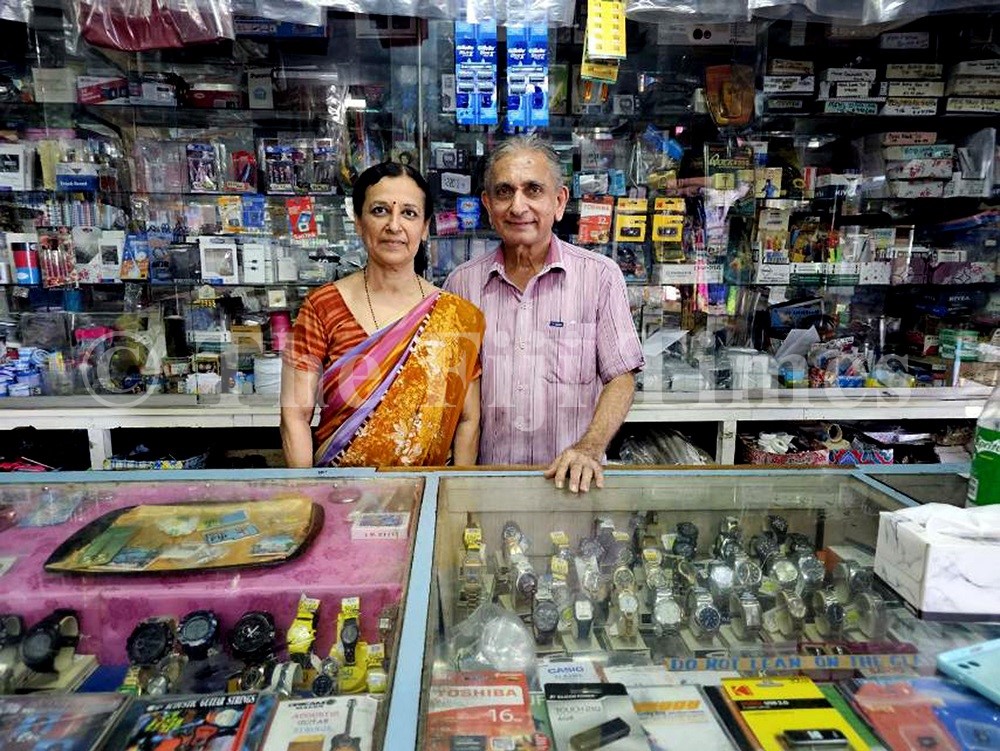March 14, 1879, was the day a vessel called The Leonidas berthed at Levuka on Ovalau from Calcutta in India under the Girmit system of indentured labour, which lasted until 1917.
The 498 indentured workers who disembarked were the first of more than 61,000 to arrive from South and East Asia.
While in Fiji, they settled, had children and built businesses of their own after the indentured system ended. Some moved to the outer islands while some stayed in Levuka and continued with their lives.
One of those families was the Vallabhs. Navin Vallabh, 75, a grandchild of an indentured laborer who had opened a fabric store in 1924, reminisced about the struggles they faced when they were younger, “My grandfather opened up this shop in 1924,” Mr Vallabh said.
“Before he passed away, he handed the business to my father, and then my father passed it on to me before he moved on.
“I am still surprised at how Fiji has changed. I’ve lived long enough to witness the transformation of Fiji, especially Levuka.
“It’s like a movie, but you’re in that movie.”
Mr Vallabh manages Vallabh & Sons, which is located in Levuka Town, with his wife of 50 years Hemlata, whom he met when she was 16 and he, eight years older.
“It was a norm back in the day. A lot of us married quite young,” he said.
“I went for a holiday to Taveuni where I met her. I fell in love with her on the first day. The next day, I married her.
“It was the best decision I’ve ever made. We’ve been together ever since.”
Hemlata, 68, sews most of the clothes in the store. She learnt to sew when in primary school and then perfected her skills as a teenager.
With Mr Vallabh being the owner of a clothes store and his wife a seamstress, there’s no question of them being each other’s soul mates.
The love they share has been evident to the people of Levuka as they both have welcoming spirits.
Decorated with the vibrant colors of saree, bula wear, t-shirts and dresses sewn by Mrs Vallabh herself, the store also sells ready-made clothes, but this wasn’t the case back then.
“Before, we never sold ready-made clothes because there weren’t any,” Mrs Vallabh said.
“We have pocket sulu, skirts, T-shirts, pants, cardigans and other clothing now, but before I had to sew all this.”
They struggled to keep the store going while raising their three children and on top of that, the sewing they had to do and sell. But the struggle has been worth it.
Many people have entered their store and have exited with smiles of satisfaction on their faces, and Mr Vallabh is thankful to his grandfather.
“My grandfather came from a family of tailors. He brought his family to Fiji and settled here in Levuka and for that, I will always be thankful because the decisions he made back then, have gotten us to where we are today.”
But there’s also another thing that captivates the eye and interest of customers. Not only do they come in as customers, many enter the store in the hope of getting a glimpse of the first sewing machine that was used when the store first opened.
“The sewing machine is a hundred years old. We still use this to sew,” Mrs Vallabh said proudly.
“This is also the sewing machine that was used to sew Ratu Sir Kamisese Mara’s uniform when he was attending Levuka Public School.
“We also have the first pair of scissors that were used by my grandfather. It’s like I can still picture my parents and grandparents holding the scissors to cut through the cloth.
“There are so many memories made in this store. I miss my father and my grandfather, but I’m also grateful and blessed to still continue the legacy left to me.”
Mr Vallabh’s children are all grown up now, married and living in Suva and Lautoka.
“My wife was born poor with no water, no electricity and would sometimes go without food and most nights without blankets, but she stayed by me as my wife and trusted me.
“Now she’s getting spoiled.”
Mr and Mrs Vallabh believe that in order to appreciate what you have accomplished, one must go through the struggle to get there.
“Kids these days are spoiled. They have to work hard and love their parents.
“Parents have to make time for their children too. And they should teach them what it is to struggle, so they can appreciate it later.”



